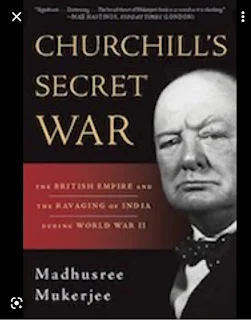Bengal Files (2025)
Written & Directed: Vivek Agnohotri
Written & Directed: Vivek Agnohotri
We know the Partition primarily affected the northwestern and northeastern regions of the subcontinent. We have also been frequently informed about the toll and intergenerational trauma it inflicted on the people of Punjab. The devastation it caused to Bengal is often overlooked at best.
The attempt to divide Bengal was made in 1905 by Lord Curzon, the then Viceroy of India. Bengal was to be split into the Muslim-majority East and the Hindu-majority West, citing administrative convenience as the reason. The real motive, however, was to weaken those opposing colonial rule. The backlash was so intense that the British abandoned the plan six years later. It is said to have sparked the Swadeshi movement, which called for a boycott of British goods.
Many things happened after that. The World War II era saw the entire Congress Party leadership behind bars. This gave the Muslim League Party all the opportunity to press the British to demand a separate country carved out of India for Muslims. By the time the war ended, Britain was in a dire state and unable to maintain its colonies. India was ready for independence, even at the expense of losing part of its land. There was a rush to claim as much territory as possible for the new country, which was called Pakistan for India's Muslims.
A year before India's independence, there was a significant clash between the Congress and the Muslim League over how the country's division should unfold. Who started the conflict depends on which side one asks. The Hindus of Bengal were adamant that Pakistan was attempting to take over the entire Bengal and had plans to swallow up the whole of Punjab, as well as inciting many princely states to join their side. They accused the Chief Minister of Bengal, Suhrawardy, whom they nicknamed 'The Butcher of Bengal', of instigating riots. He was allegedly announcing over the mosque to the Muslims to go forth and kill non-believers. To the Muslims, the Hindu resistance leader, Gopal Patha, was the butcher, a city-based meat-selling Brahmin from Calcutta. Neither party admits to starting the fire; they were merely reacting to hostility.
 |
| Calcutta - Direct Action Day 16th August 1946. |
Watching the movie, my novice, untrained mind detected two boo-boos. It was 1946-47, and MK Gandhi was in conversation with Jinnah. Gandhi was coaxing Jinnah against the idea of Pakistan... "after all, the Hindus and the Muslims are of the same DNA?" Gandhi said. Really? People talking about DNA in 1947? For the record, Watson and Crick only proposed the idea of DNA in 1953 and received the Nobel Prize in 1962.
Another anachronistic moment was when the main character was finally apprehended by the mob. He is punished by having his upper limbs dismembered. His limbs are pulled apart by two motorcycles. At a glance, the vehicles look like they were Japanese-made, like those sold in the 1980s. For the record, India received its first shipment of Royal Enfields, imported from the UK for British officers' use. Motorcycles were bulky in that era. India's first locally produced motorcycle was the Royal Enfield Bullet 350 in 1955.







.svg.png)





.jpeg)













